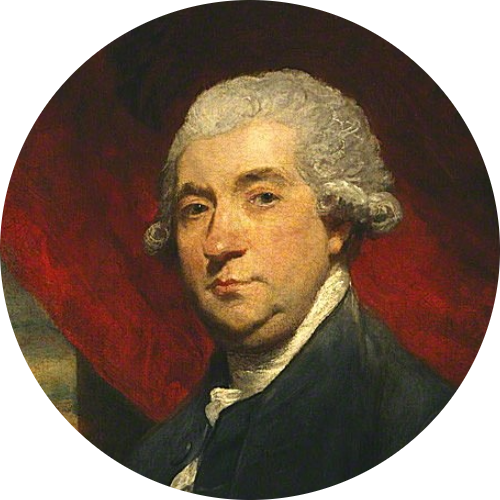Son of Rev. Dr. Alexander Webster, and Mary Erskine (d. 1766) of Alva, and thus a maternal cousin of James Boswell.
A Lt-Colonel in the British Army, he was wounded at the battle of Guilford Courthouse during the American Revolutionary War on March 15, 1781, and died from his wounds 2 weeks later
Webster and Boswell most likely had known each other since childhood, them being first cousins of the same age, and both having lived in Edinburgh for most of their life.
Webster visited Boswell in his lodgings on Downing Street, London, on December 18, 1762, Webster having just returned from Germany. Boswell visited him on December 20 and spoke with him again on December 22 and February 18, 1763. They dined together at Mrs Gould's on January 3, 1763, and Webster visited Boswell on February 18, 1763.

Comments
James Webster
JJC (not verified) Thu, 06/21/2012 - 23:32
Second son of Rev. Dr. Alexander Webster [1707 or 1708–84], Minister of the Tolbooth Kirk, and Mary Erskine of Alva [1715–1766], JB’s aunt. (Ominous Years, p. 378, Chart V: ‘The Cochrane, Preston, and Webster Connexions’). Ensign 33rd Foot 1758, Lt. in the 33d Ft., promoted to Army rank of Capt. 14 Jan. 1763, and Capt. in the 33rd Regt. 19 May 1763, Maj. in the 33rd 1771, Lt.-Col. in the 33rd 1774, where he was Gen. Cornwallis’s trusted regimental second-in-command, and an acting Brig. Gen. in America (Army List). His Army career was somewhat unusual given that it involved continual service within the same regiment. JB’s use of ‘Captain’ here, as in the case of his calling AE ‘Captain Erskine’, was an instance of hyperbole. He is called ‘Captain James Webster’ because his brother John [b. 1738] was also a Lt. in the Army, in the 4th Regt. of Foot (Lt. 1761).
Webster saw active duty in the European Western Front of the Seven Years’ War (‘Germany’), and again in the American War, which JB opposed. The 33rd served at Charleston SC, Long Island and Harlem Heights, NY (1776), Brandywine and Germantown PA (1777), Monmouth NJ and Newport RI (1778), Charleston and Camden SC (1780), and Guilford Courthouse NC (1781). Webster was wounded in this last battle, and died two weeks afterwards of his wounds.
JB saw Webster again in 1767, at latest (Journ. 12 Mar. 1767). ‘He was in prodigious spirits. He pleased me highly’ (Journ. 27 Aug. 1769). On 15 Aug. 1774, Webster defended the seasoned ‘experienced soldiers’, ‘if they had not been wounded’, as superior to ‘young ones’ who had the ardor of inexperience. (Journ.) JB followed the campaigns of his ‘gallant cousin’ with appreciation even as he opposed the war of coercion (Journ. 16 Oct. 1780).
Webster's visit 1762-12-17
Mark Milton (not verified) Wed, 07/31/2024 - 21:38
In reply to James Webster by JJC (not verified)
Although the text above states "Webster visited Boswell in his lodgings on Downing Street, London, on December 18, 1762, Webster having just returned from Germany", I believe the visit took place the previous day (1762-12-17), but is only mentioned on the 18th.